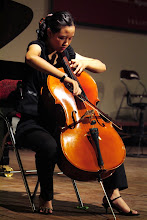In this article, a brilliant discovery about the clam, the small organism used to be our food items will be shared. For me this is one of the most interesting topics I've found today while reading the Science Daily.
Biologists discovered that they can use CLAMS to determine the toxin's sources in water. Clams are used as pollutant traps. These small organism clean the water in a natural way. They feed absorbing toxins in their tissues as they draw in water. Biologist place the clams in the rivers and streams are contaminate pollutants, which some you can see and some you cannot see such as pesticides, lead, arsenic and PCBs. Later on, they open the clams' shells and determine which kind of pollutant contained in those streams and rivers. This is a smart way to analyze the health of a stream or river.
This is a cool way to cleanup the environment, the clams become tiny pollutant detectives. We cannot imagine how amazing are these creature's ability. For example: the clams detected a banned pesticide in Maryland, buried years ago and no slowly leaking. By using clams, I believe these small organism will help scientists determine the toxins' sources in the water earlier to find solution for it. The earlier they find out the problem, the easier to solve it. To fix the pollution problems, that's costly to cleanup the polluted water. But nowadays, they are trying to find a new and inexpensive way to fix the problems. Clam is just one of the organism that scientists use in biological testing such as plant, animal, and microbial indicators.
From this article, I believe people have to rethink the role of animals or just organism such as clams.
